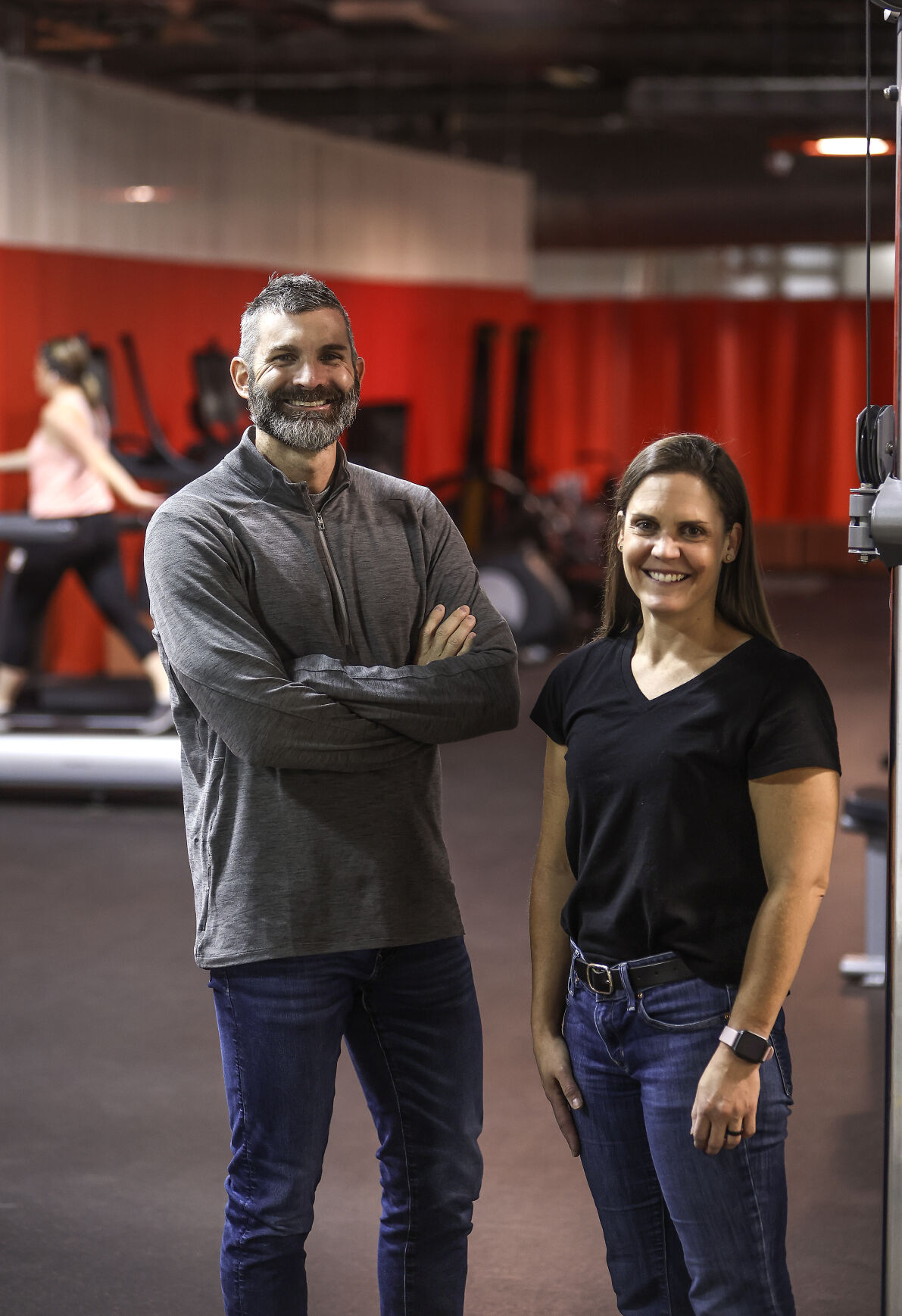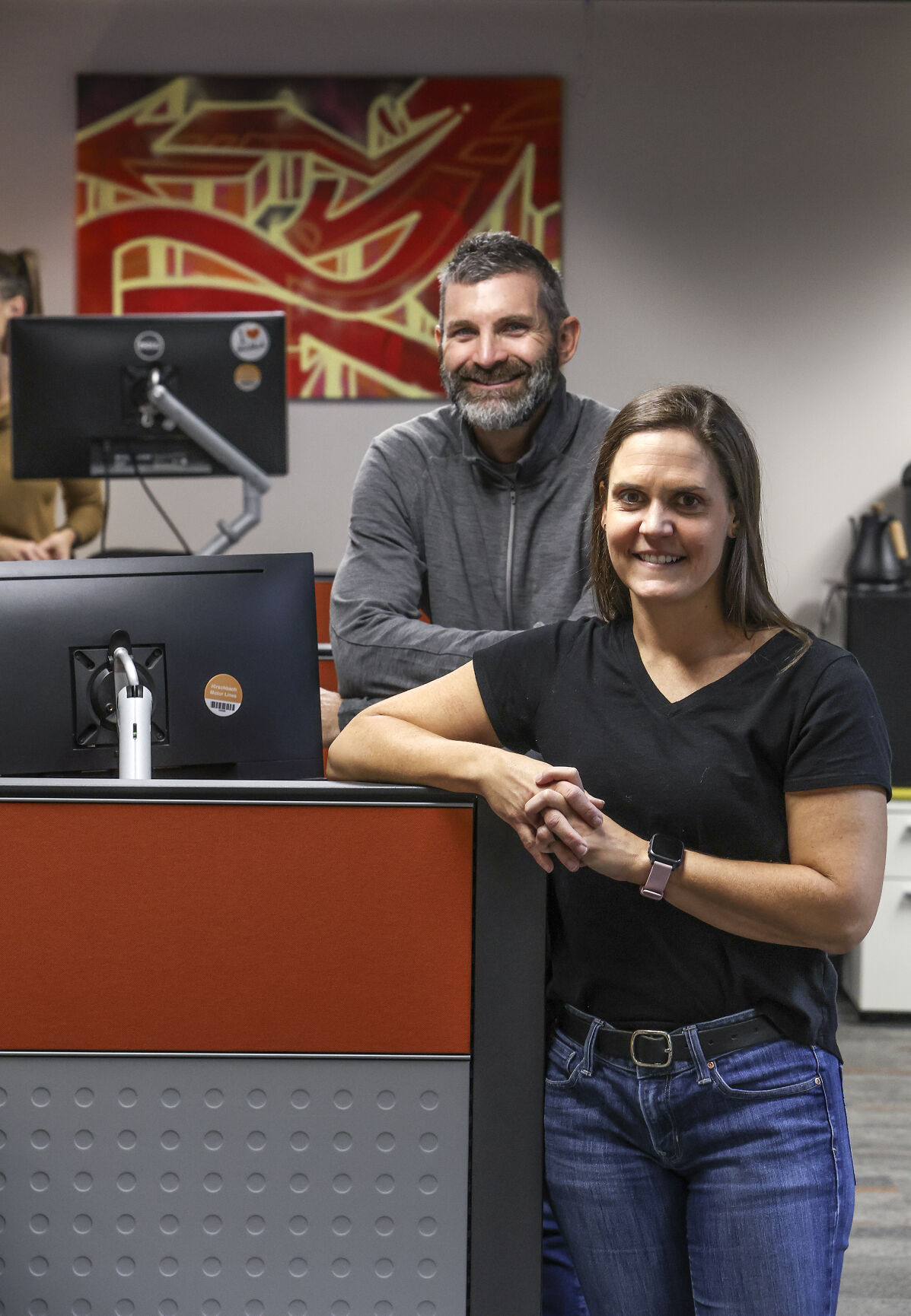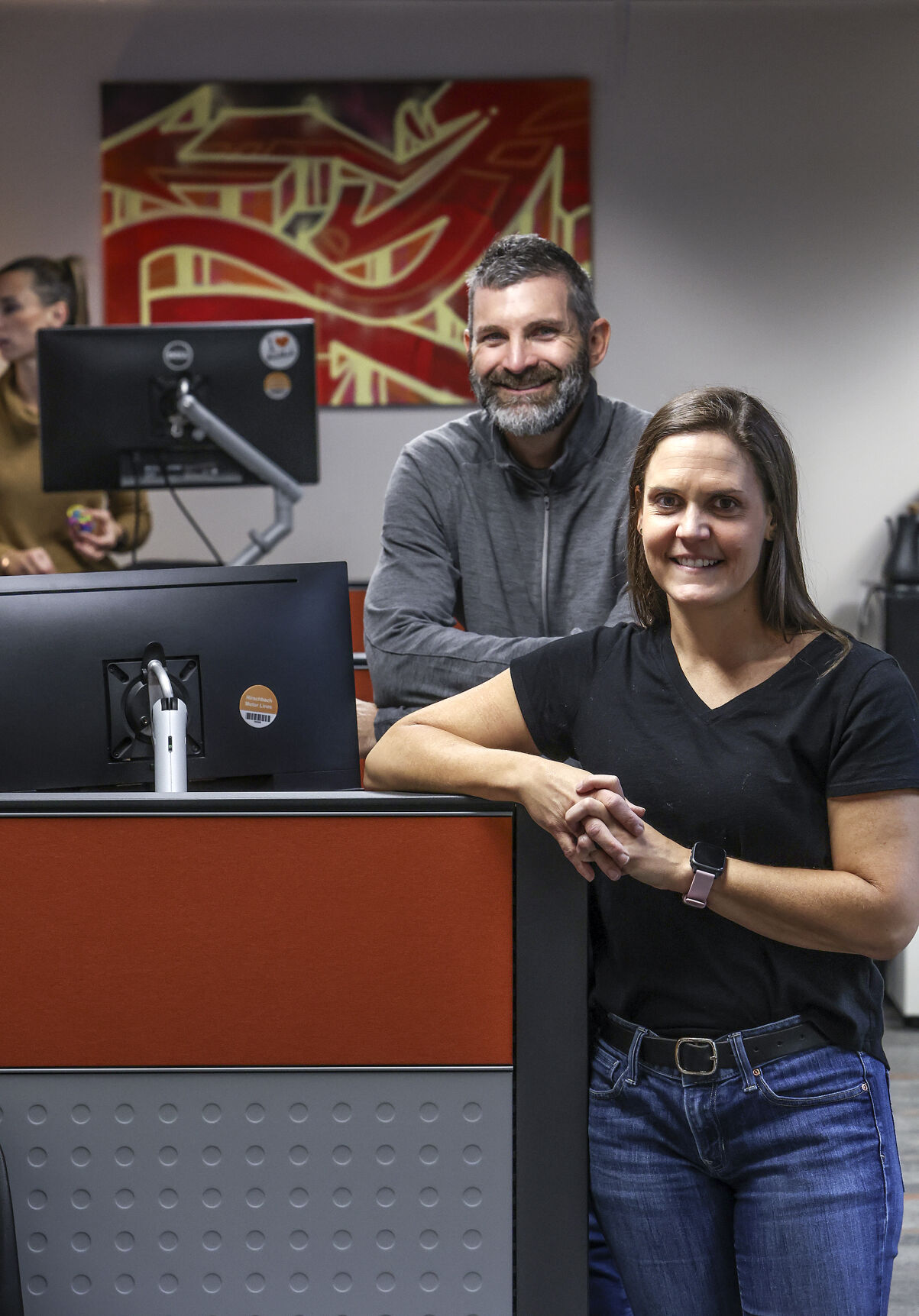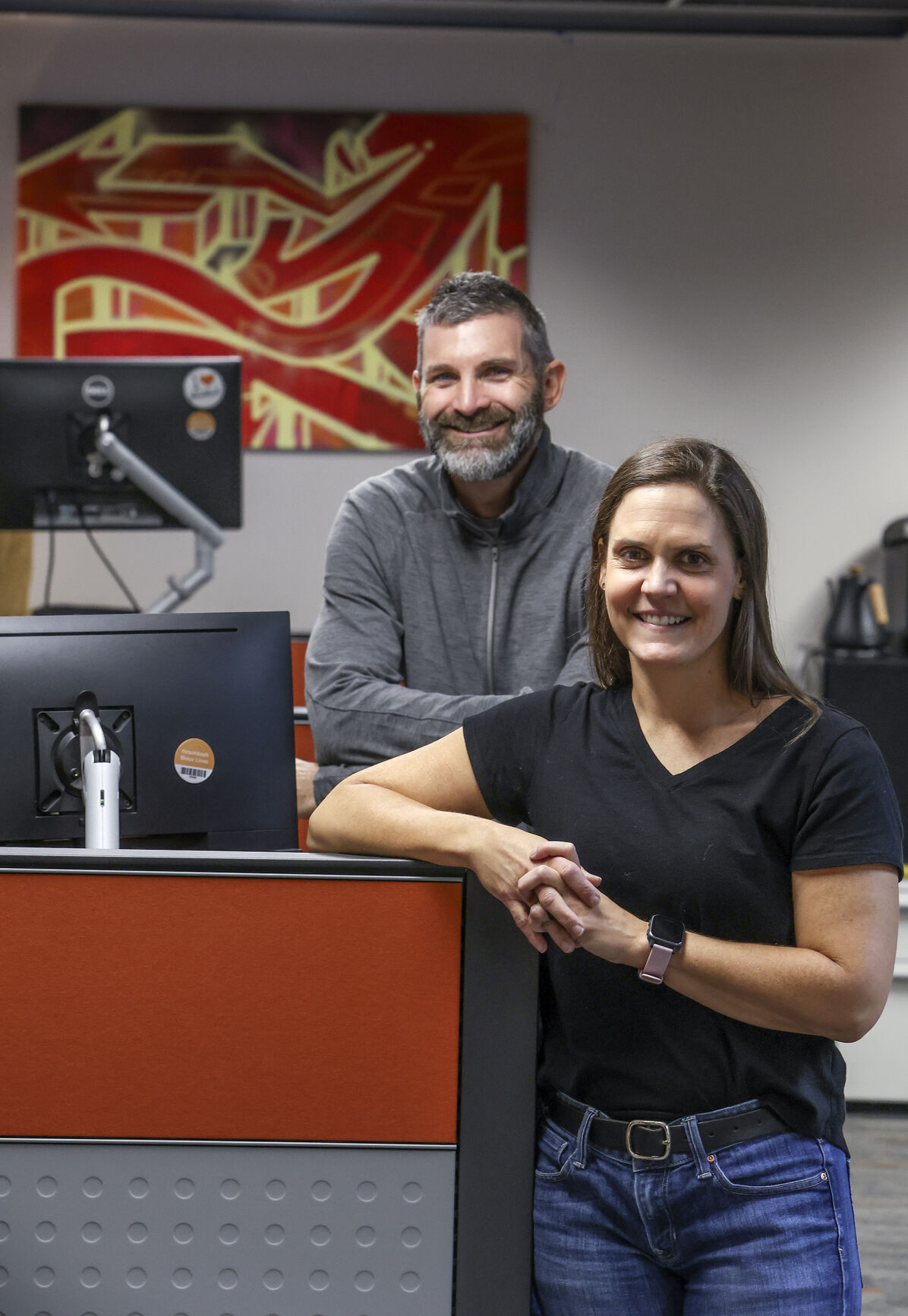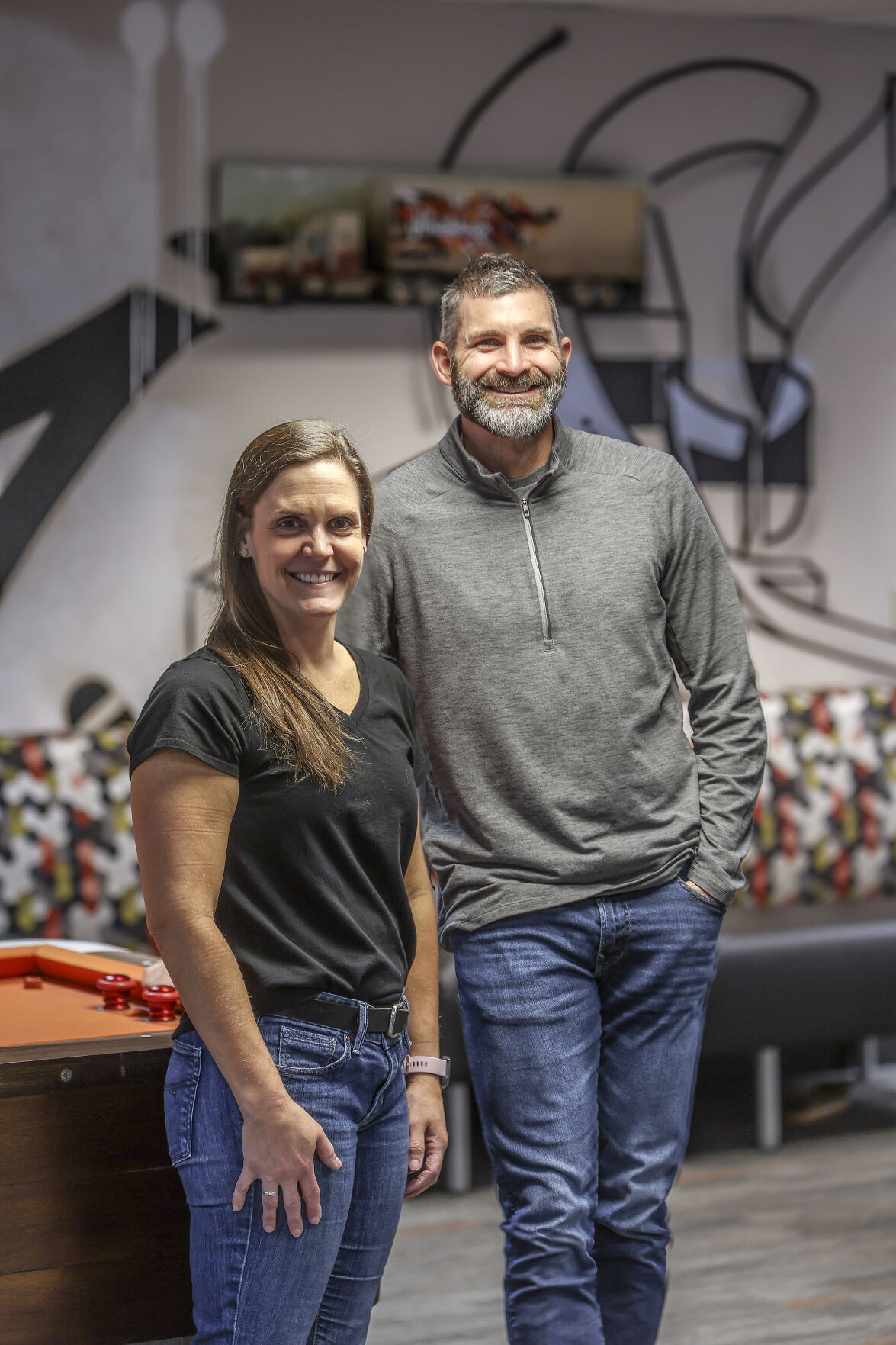Mae Hingtgen sees her work as a battle against misperceptions surrounding mental illness.
“Just as your heart or your liver could get sick and you would not hesitate to seek treatment, your brain gets sick,” said Hingtgen, who is chief executive of Mental Health/Disability Services for the East Central Region. “We’re trying to normalize that people’s brains can get sick, and they should not hesitate to seek help. It’s really a campaign to reduce the stigma around mental illness.”
One of her goals in that campaign is for employers in the tri-states to create opportunities for their employees to speak out and address any brain health concerns they might have.
“We have to acknowledge that some people experience brain health concerns,” she said. “And when we normalize it, we say it’s OK to need help and help is available.”
Dubuque-based Hirschbach Motor Lines is one employer in the area that has implemented multiple initiatives to help the 225 employees at its corporate offices improve their overall brain health.
Brad Thies joined the company two years ago as its wellness coordinator. After graduating from the University of Dubuque with a degree in exercise science, Thies has worked for 20 years with athletes, from high school to the professional level, trained geriatric populations and run a CrossFit gym. He previously ran a wellness program at Platinum Supplemental Insurance in Dubuque.
“I’ve worked with country artists, musicians, kind of all walks of life,” he said. “To me, brain health is defined as the pursuit of happiness. What brings you great joy in life and what factors cause negative feelings. Life is full of ups and downs.”
Thies encourages his coworkers at Hirschbach to ask themselves if they are:
- Surrounding themselves with positive or negative thinkers?
- Pushing themselves to reach their full potential or holding back from pursuing their dreams?
- Feeding their minds and bodies with nutritious foods?
- Unplugging daily from devices while being outside, enjoying the fresh air away from distractions?
“Sitting down, being able to answer those questions honestly, that’s a great place to start to see where you’re at,” Thies said.
The wellness program he oversees includes everything from group exercise classes to pickleball and basketball courts that employees can use during their breaks. Chiropractors and massage therapists bring their services to Hirschbach’s corporate office once per week.
“We have quiet meditation space for someone who needs to take a break away from their desk. It’s a comfortable recliner and a private area,” said Kristi Marshall, the wellness administrator at Hirschbach. “There are a couple of those spaces in our work environment. We also have quiet workspaces — four private cubicle spaces if someone needs a quiet environment to work, depending on the project they are working on.”
The company uses a smartphone app programed with workouts for its fleet of drivers who wish to be healthier while on the road.
“Many of them will do the workouts at truck stops or at night when they pull over to rest,” Thies said. “I program workouts that they can do daily. Some of them will do three workouts a week, some will do five to seven workouts a week. All are short workouts, maybe 10 to 20 minutes — just something simple to keep them healthy on the road, help to help them dial in their focus and ultimately sleep better and drive safer.”
The goal is to start small so that no one is immediately intimidated.
“Just making small changes, whether it’s helping them pick out a healthier option at a gas station, rather than getting a regular pop, they could switch to a water,” Thies said. “Instead of getting two slices of pizza, getting one slice. Little habits like that will build over time.”
Marshall estimates that more than half of the company’s employees utilize at least some of the wellness offerings.
“It obviously varies depending on the service, but we try to offer a spectrum of (services) depending on what people’s needs or desires are, whether physical activity is something that helps them or whether they need quiet space.”
Over time, the company should also see benefits from its wellness program if it leads to increased productivity and fewer insurance claims being filed by its employees, as well as fewer sick days being used.
There is better teamwork, Thies said, because many of the employees look forward to coming to work, doing their workouts with likeminded colleagues and discussing their day at work.
“It creates good camaraderie around the office, positive energy,” he said.
The bottom line is that it helps the company’s bottom line.
“Our outreach and the things that we do come from a place of caring,” Marshall said. “Those positive side effects that come along with it are icing on the cake.”


